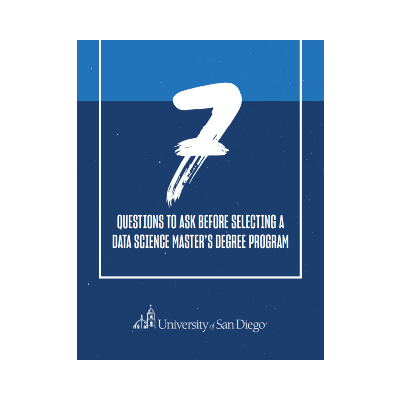It’s hard to ignore the reality that data and analytics have become integral components of the sports world. From fan engagement and player performance to fantasy sports and product development, data is as much a part of sports today as the players and coaches themselves — and that’s the good news for anyone who is interested in working in sports analytics! In fact, the global sports market is expected to reach $599.9 billion by 2025.
In this career guide, we detail popular sports analytics careers, which are an ideal choice if you’re passionate about sports and fascinated by data and numbers. Let’s dive in.
What Is Sports Analytics?
First, let’s explore a comprehensive definition from Indeed:
“Sports analytics is the analysis of sports data, including components of sports such as player performance, business operations, and recruitment. The data offers an advantage to both individuals and teams participating in a competition and sports enterprises. Sports analytics uses the application of mathematical and statistical rules to sports.”
There are two main types of sports analytics — on-field and off-field.
On-field analytics focus on specific player/team data, contributions and statistics. Off-field refers to the business, product, or customer operations of an organization, such as ticket prices, consumer behavior, merchandise sales, fan engagement, product development and so on.
Examples of Sports Analytics
The story that essentially put sports analytics on the map is the popular book-turned-movie Moneyball: The Art of Winning an Unfair Game by Michael Lewis, which was published in 2003. Lewis chronicles the real-life story of Oakland A’s manager Billy Beane, who decided to take a more analytical approach to recruiting and focus on the statistics of less-expensive players when faced with a tight budget.
Popular examples of sports analytics include coaching decisions, which are often influenced by pages of player and opponent data. For example, you’re probably familiar with common baseball statistics such as batting average, at bats, hits and strikeouts. But there are a host of others, including slugging percentage, on-base percentage, on-base plus slugging, stolen-base percentage, hit-by-pitch and run differential. That’s in addition to statistics about how a batter stacks up against a certain pitcher, and how well players perform in different ballparks. In other words, there are a lot of statistics in each sport, and organizations are seeking skilled professionals to gather and interpret this kind of information.
Other examples include ticket prices that fluctuate based on who the home team is playing, broadcasters and media companies who supplement their play-by-play and color commentary with statistics and the fantasy sports market, which is flooded with nothing but statistics and data analysis and is growing. In fact, a recent report projected the fantasy sports market to be worth $44.07 billion with an estimated compound annual growth rate of almost 13% between 2022 and 2027.
Sports Analytics Careers
There are a wide variety of analyst-related positions in sports. Some are focused on player statistics, team strategy or athlete performance while other jobs are centered on business and customer analytics related to a specific team, league or product.
Some recent titles from LinkedIn and Indeed include:
- Sports Trading Analyst
- Senior Compensation Analyst
- Innovation Analyst
- Digital Analyst
- Sports Injury Analyst
- Senior Financial Reporting Analyst
- Customer Relationship Management (CRM) Analyst
- Sr. Strategy Analyst
- Sports Performance Analyst
- Lead Performance Analyst
- Player Development Analyst
- Club Business Operations & Strategy Analyst
- Senior Analyst, Consumer Analytics
Where Do Sports Analysts Work?
Here are some common umbrella categories, courtesy of Indeed. We added teams, organizations and companies to give you more specific examples.
- Professional and college sports programs — MLB, NBA, NHL, NFL, NASCAR, WNBA, MLS, Minor League Baseball, in addition to specific sports teams and programs
- Sports media companies — ESPN, Turner Sports, Barstool Sports, NBC Universal
- Wearable technology companies — Apple, Fitbit, Garmin
- Sports gambling — Churchill Downs, Caesars Entertainment, MGM Resorts International, FanDuel, DraftKings, Inc.
- Sporting good manufacturers — Nike, Adidas, Wilson Sporting Goods, Callaway Golf, Eastern Mountain Sports
Hard and Soft Skills Needed in Sports Analytics
First and foremost, it’s important that sports analysts have a passion for both sports and numbers.
When it comes to hard skills, statistical analysis, data analytics and data visualization are often required. You may also need to know many data-centric applications such as R, Python, Matlab, SQL and Excel. And it can help to have experience with digital analytics tools such as MixPanel and Google Analytics.
Soft skills include excellent communication, good interpersonal skills and writing skills. As Keith Goldner, a sports statistical analyst, once said: “The ability to communicate information effectively is the most important skill when dealing with anyone outside this field. You have to explain complex mathematical concepts and why they’re important, sometimes face to face and other times through blog posts or articles.”
Education Requirements for Sports Analytics
Sports analysts tend to hold two different types of bachelor degrees.
Many go to school for communications, journalism, sports journalism or broadcasting with the goal of becoming a sportswriter or working in “on-screen” sports analysis jobs, such as a play-by-play announcer on TV or radio. Other sports analysts who are more data or math-centered may major in mathematics, computer science or statistics. Regardless of your undergraduate degree, for the types of sports analytics jobs we’ve highlighted in this career guide, it’s important to know and understand data science and data analytics.
That’s not to say, however, that you can’t secure a job in sports analytics with an unrelated degree. Depending on the company, you may be a desirable candidate despite a non-traditional background if you have strong relevant experience. This can be achieved through an internship, additional courses, a bootcamp or a master’s degree in data science and data analytics.
5 Steps to Becoming a Sports Analyst
If you’re interested in sports analytics, we recommend the following steps:
- Earn a relevant bachelor’s and/or master’s degree. As we mentioned earlier, you can supplement your undergraduate education with additional courses or an advanced data-related degree.
- Gain experience. This can be achieved through an internship, bootcamp or master’s degree program.
- Create a robust resume and portfolio. You want to demonstrate you have the right combination of experience, education and drive.
- Consider networking opportunities and informational interviews. Make sure your LinkedIn profile is up to date, and don’t be afraid to reach out to those who are currently working in sports analytics. Ask for an informational interview, which is a low stakes conversation that enables you to learn more about what it’s like to work in a particular field.
- Begin your job search. Entry-level positions and internships are a great way to get your foot in the door.
How Much Does a Sports Analyst Make?
Your salary will depend on a number of factors, including the job itself, hiring organization, responsibilities, experience and education required, and where the job is located (or whether it’s hybrid/remote). It’s important to note that the numbers listed below may fluctuate as salary data is often updated in real time.
- National average of $61,145 with a range of $21,500 to $120,500 (ZipRecruiter)
- Average U.S. salary is $78,356 (Comparably)
- Average of $62,660 — (Glassdoor)
[RELATED RESOURCE] Elevate your career in sports analytics. Access our guide to select the right master’s program for your goals.
Career Outlook for Sports Analysts
Since the sports world is booming — with no signs of slowing down — related jobs are also on the rise. According to the U.S. Bureau of Labor Statistics, employment in entertainment and sports occupations is projected to grow 13% from 2021 to 2031 (much faster than the average for all other occupations), adding about 95,500 new jobs.
Top Companies That Are Hiring
There is no shortage of sports analyst positions around the world. From individual sports teams and leagues to media corporations and sports management companies, opportunities abound. A recent search on LinkedIn and Indeed revealed thousands of open positions for “sports analyst” with the following top companies hiring:
- MLB
- TaylorMade Golf Company
- Philadelphia 76ers
- Fox Corporation
- Dick’s Sporting Goods
- FanDuel
- U.S. Soccer Federation
- NFL
- NBA
- DraftKings, Inc.
- NASCAR
- Seattle Kraken
- Baltimore Orioles
- U.S. Olympic & Paralympic Committee
- PGA Tour
- Elevate Sports Ventures
- Excel Sports Management
- Cincinnati Bengals
- ESPN
![Preview image of How to Become a Sports Analyst [Career Guide]](https://onlinedegrees.sandiego.edu/wp-content/uploads/2022/12/sportsanalytics.jpg)

![Preview image of How to Become a Financial Analyst [+ Salary & Career Guide]](https://onlinedegrees.sandiego.edu/wp-content/uploads/2022/03/how-to-become-a-financial-analyst-1024x683.jpg)

